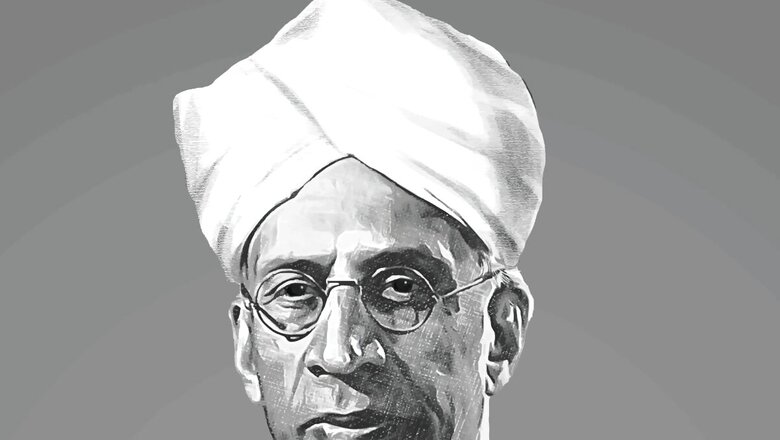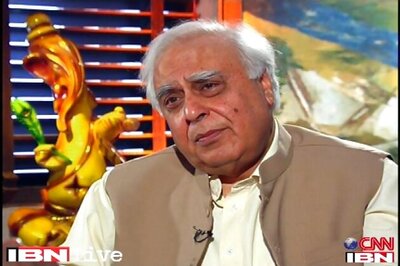
views
Life, both personal and societal, presents moments that call for a pause, a chance to reflect on our actions, traditions, and beliefs. These are opportunities for reassessment, for re-evaluating our past and envisioning a new path forward. This period of ‘natality,’ or fresh beginnings, requires a visionary approach that is both inclusive and forward-thinking, fostering the well-being of society and the nation.
Unlike the Western notion of modernity, the Indian tradition of ‘newness’ embraces renewal and rejuvenation. This tradition values continuity rather than rupture, advocating for the reinvention of civilisational ethos and cultural practices. The ongoing re-visioning of values, laws, philosophies, and other aspects of life is essential to ensure that societal structures align with the material development and progress of the times. Such alignment paves the way for the seamless progress of individuals and communities, minimising friction and attrition.
In this context, the role of philosophers becomes particularly significant. The etymological root of the word ‘philosophy’ means ‘love of wisdom.’ Wisdom, rather than mere knowledge, has been the cornerstone of our great Indian civilisation. Where knowledge may falter, wisdom prevails. This article explores one such philosopher of our times, Dr Sarvepalli Radhakrishnan, who connected education with the cultivation of wisdom. For Dr Radhakrishnan, the purpose of education was to teach that life has meaning and to awaken the innate ability to live a soulful life through the development of wisdom.
Born on September 5, 1888, in Tiruttani (now Tirupati, Andhra Pradesh), then part of the Madras Presidency under British colonial rule, Dr Radhakrishnan passed away on April 17, 1975, in Madras (now Chennai), leaving behind a rich legacy. His profound wisdom left an indelible mark on the hearts and minds of countless Indians. It is no surprise that Dr Radhakrishnan’s academic rise was closely tied to his philosophical roots. He was deeply influenced by the teachings of ancient Indian philosophers and drew inspiration from great thinkers like Swami Vivekananda and Ramakrishna Paramahansa. His extensive knowledge of Western traditions and ideas also enabled him to bridge the gap between these seemingly opposing schools of thought.
Dr Radhakrishnan’s philosophical beliefs complemented his administrative skills, allowing him to expand the reach of Indian culture abroad. As Vice-Chancellor of Andhra University and later as Ambassador to the Soviet Union, he showed deep commitment to India’s cultural ethos, using these roles to promote its values and civilisational frameworks.
During the height of the Cold War, Dr Radhakrishnan served as India’s Ambassador to the Soviet Union, yet maintained friendships with American statesmen. Widely respected in the West, Dr Radhakrishnan was seen as an authority on Indian philosophy and a persuasive interpreter of the role of Eastern institutions in contemporary society. He was arguably the first to bring India closer to both the Soviets and Americans simultaneously.
In terms of religion, Dr Radhakrishnan emphasised how Hinduism reformed itself in response to the religions introduced by foreign rulers. He advocated that Hinduism should abandon imperfect conceptions and democratise its institutions to eliminate prejudice and inequality. Dr Radhakrishnan played a key role in transforming Indian education, with subsequent education models and policies built on the foundation he laid.
Dr Radhakrishnan believed that education should be both ‘man-making’ and ‘society-making.’ He argued that education should not be limited to the acquisition of facts and knowledge but should aim to achieve wisdom and truth. Critics who label him a traditionalist must recognise that Dr Radhakrishnan was ahead of his time.
In his report to the University Education Commission (1948-1949), Dr Radhakrishnan recommended teaching through discussion and learning by doing as complements to textbook education. He also noted in the same report, “No society can progress satisfactorily with the backwardness of women. If women are uneducated, society will remain uneducated.”
For Dr Radhakrishnan, education was a tool to strengthen the cultural foundations of society and to introduce new ideas and pathways for the material and spiritual progress of all its members. His writings, when revisited today, align closely with the current National Education Policy (2020).
In 1962, when Dr Radhakrishnan was elected President of India, a group of students requested to celebrate his birthday. He suggested they observe it as Teachers’ Day instead. Thus, September 5 came to be recognised as Teachers’ Day, honouring the invaluable contributions of teachers to society.
Moreover, Dr Radhakrishnan’s idea of blending Western and Eastern methods, particularly his advocacy of the Socratic method in education, stemmed from his belief that such an approach would foster a vast pool of critical thinkers. He emphasised the importance of strengthening national philosophy by empowering students to grasp the essence of the country, thereby enabling them to uplift society.
Dr Radhakrishnan’s ideas on education are arguably what the country needs today, and the fact that they resonate with key aspects of the National Education Policy highlights the enduring relevance of his philosophical thought. It is fitting that he was awarded the Bharat Ratna for his invaluable and immeasurable contributions to Indian culture and education.
While there has been criticism against Dr Radhakrishnan—regarding his views on social institutions, his educational philosophy, and his interpretations of India’s spiritual canons—no one can deny that he was a unifier, not a divider. His writings championed unity, peace, democracy, and learning for all. It is heartening to see that India continues to commemorate his birthday as Teachers’ Day every year.
K. Sreenivasarao is Secretary of Sahitya Akademi, National Academy of Letters, India. Views expressed in the above piece are personal and solely that of the author. They do not necessarily reflect News18’s views.



















Comments
0 comment